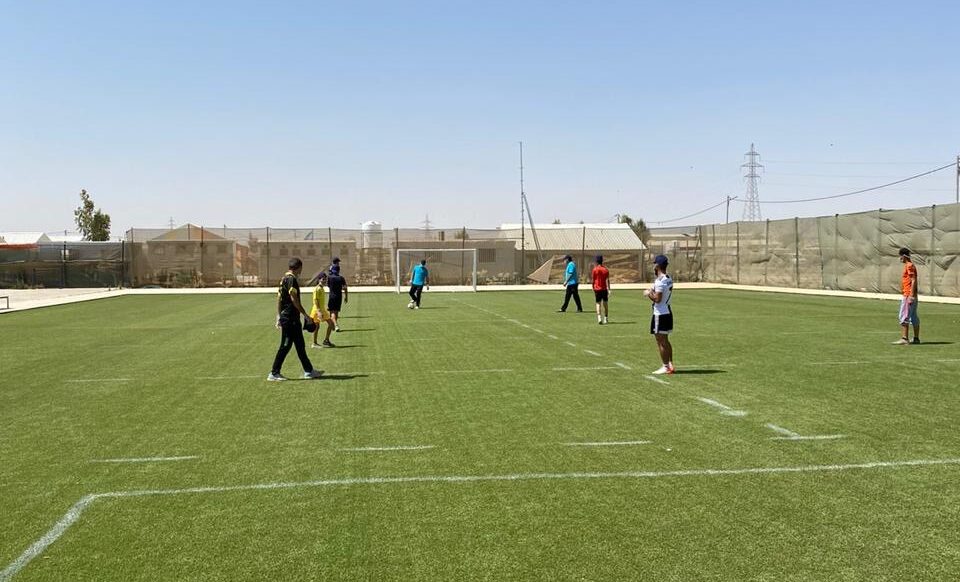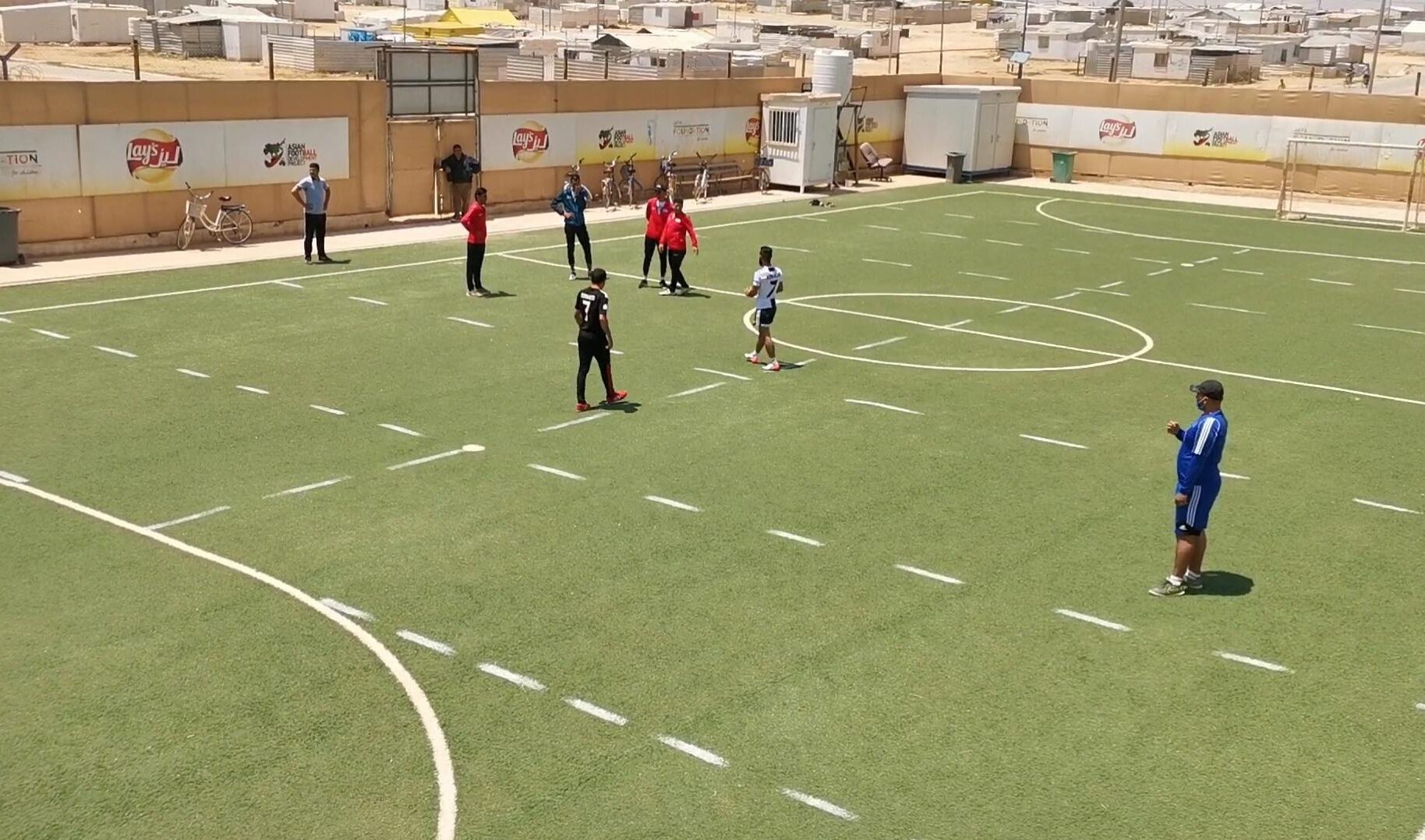Young football players at Za’atari Camp are staying active while keeping safe during the COVID-19 pandemic.
For years, football has kept boys and girls at Za’atari Camp in Jordan engaged while allowing them to form new friendships as they cope with the trauma of displacement. With the emergence of the COVID-19 pandemic, the young refugees feared that they would no longer be able to play their favorite sport.
As preventative measures were put in place to prevent the spread of illness, regular football games and practices were canceled until further notice. In response, the creative young players began researching ways to play while staying safe.
After seeing a group of Argentinian football fans adopt a new method of playing football while following social distancing measures, young refugees decided to try it out for themselves.
Playing off the idea of a tabletop football or foosball, in which figures attached to a rod cover different areas of a table and are moved or spun to play, a version of “human foosball” set up young players in their own spaces on the field (without the connecting rods!).
Each player has a designated rectangle that he/she must stay within throughout the game. If a player crosses the line, they get an automatic penalty and the ball goes to the other team. These restrictions on movement allow young people to continue playing the game while staying safe from the spread of disease.


“It’s good to be out and playing football again,” said Mohammad, one of the participants. “It feels good to return to some kind of normalcy.”
The modified game promotes teamwork by creating a greater need for passing over running and fancy footwork to score points.
After seeing the success of the game in allowing athletes to continue playing football while following preventative measures, UNHCR encouraged other refugees and coaches across the camp to start their own games as well.
Related Reading
Robots for Change: Youth Use New Skills in Innovative Ways
Looking to the Future, with the eye of a TIGER



